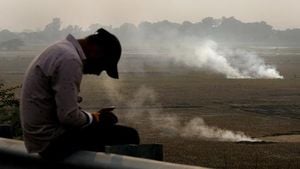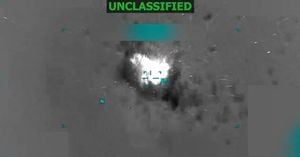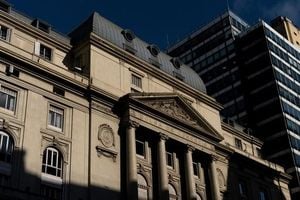Romania is witnessing significant political changes following the announcement of new government appointments, particularly the appointment of Emil Hurezeanu as Minister of Foreign Affairs under the leadership of Prime Minister Marcel Ciolacu. Hurezeanu's extensive experience as a diplomat is seen as pivotal for Romania, particularly at this turbulent time.
Emil Hurezeanu, born on August 26, 1955, has established himself as one of Romania's most prominent figures in diplomacy. His career spans journalism, education, and significant roles within the Romanian government. Before his recent appointment, Hurezeanu served as Romania's ambassador to Germany and Austria, positions where he skillfully navigated complex international waters and strengthened bilateral relations.
The backdrop of this political reshuffle is marked by deep public dissatisfaction with existing political leadership. Klaus Iohannis, Romania's president, finds himself still occupying the presidential palace, albeit controversially, after his term expired. Many political factions have decried his continued presence, calling for legitimacy—a situation complicated by the recent annulment of the first round of presidential elections, which continues to stir unrest among the populace.
Hurezeanu’s appointment, lauded by several political analysts, is viewed as a beacon of hope for stability within the Ministry of Foreign Affairs. Observers note, "Nominalizarea lui Emil Hurezeanu la conducerea Ministerului Afacerilor Externe este un semnal pozitiv," highlighting the potential for effective diplomacy under his guidance.
The newly structured Ciolacu government, composed of 16 ministries, showcases a coalition of the Social Democratic Party (PSD), the National Liberal Party (PNL), and the Democratic Alliance of Hungarians in Romania (UDMR). Each party has contributed to the establishment of various cabinet positions, including Marcel Boloș and Sorin Grindeanu, who are expected to play significant roles moving forward.
Despite the promise of new leadership, concerns remain about implementing effective governance. Many citizens express skepticism about whether the new government can address pressing economic and social challenges. The atmosphere is layered with distrust; "Noul guvern Ciolacu se va confrunta nu doar cu problemele economice și sociale din ce în ce mai grave, ci și cu neîncrederea din ce în ce mai mare a românilor față de politicieni," indicating the uphill battle for political integrity and performance.
Another aspect of the newly formed government is its strategy for public welfare, particularly concerning vulnerable populations. Emphasis has been placed on supporting young women and families, aimed at integrating them more fully within the social fabric and combating workplace inequities. During this time of transition, the government has pledged to prioritize economic growth and social justice through various proposed measures, though concrete results remain to be seen.
The public will be closely watching how Hurezeanu’s leadership will shape Romania's foreign policy. His recent successes—most prominently, fostering positive relations with Austria, paving the path toward Romania’s eventual Schengen admission—underscore the potential impact of experienced leadership. Observers hope Hurezeanu brings coherence and professionalism back to Romanian diplomacy.
Looking forward, the government faces many trials, not only internally but also externally, as it positions itself on the European stage amid geopolitical tensions. Ensuring national stability and rebuilding trust is pivotal. The dual challenge of rectifying past grievances and advancing national interests will test the resolve of Hurezeanu and his governmental counterparts.
Emil Hurezeanu’s ascension to the role of Minister of Foreign Affairs carries with it great expectations. Romania stands at a crossroads with the necessity for strong, reliable leadership amid calls for reform across political avenues. The path forward may be fraught with obstacles, yet the hope remains for steadying hands to guide Romania through these tumultuous times.



